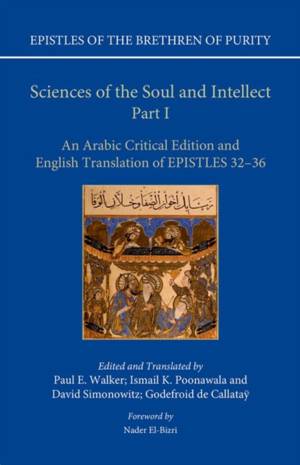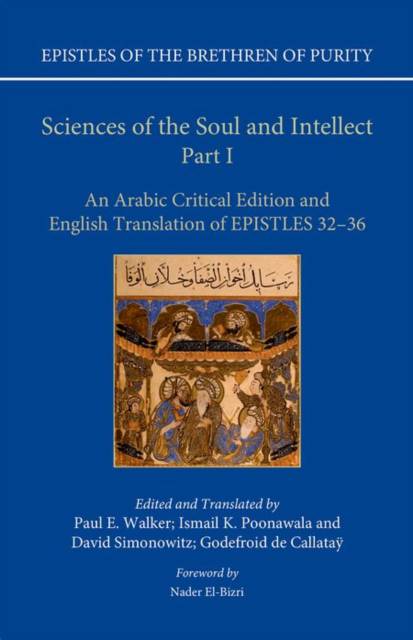
- Retrait gratuit dans votre magasin Club
- 7.000.000 titres dans notre catalogue
- Payer en toute sécurité
- Toujours un magasin près de chez vous
- Retrait gratuit dans votre magasin Club
- 7.000.0000 titres dans notre catalogue
- Payer en toute sécurité
- Toujours un magasin près de chez vous
159,95 €
+ 319 points
Description
The Ikhwan al-Safa (Brethren of Purity), the anonymous adepts of a tenth-century esoteric fraternity based in Basra and Baghdad, hold an eminent position in the history of science and philosophy in Islam due to the wide reception and assimilation of their monumental encyclopaedia, the Rasa'il Ikhwan al-Safa (Epistles of the Brethren of Purity). This compendium contains fifty-two epistles offering synoptic accounts of the classical sciences and philosophies of the age; divided into four classificatory parts, it treats themes in mathematics, logic, natural philosophy, psychology, metaphysics, and theology, in addition to didactic fables.
Epistles 32 to 36 comprise the first five treatises in the third division of the Rasa'il, on the sciences of the soul and intellect. Combining Islamic revelation with Hellenistic philosophy, the Ikhwan delineate herein their metaphysical system. Epistles 32 and 33 present adaptations of the Pythagorean doctrines, and of Neo-Platonist leitmotifs, whereby a numerical analogy is applied to the unique and transcendent God, or the One, from whom all existence emanates. Epistle 34 takes up the pervasive theme of the correspondence between microcosm and macrocosm, situating the human being as the central link between the celestial and terrestrial realms. In Epistle 35, we find an explanation of the intellectual faculties of the individual human soul, whose ultimate aim is ascension to the timeless reality of pure intellect. Finally, Epistle 36 presents itself as the astrological epistle par excellence of the Rasa'il; from the coming-to-be of worms, to the emergence of religions and empires, nothing in the sub-lunar sphere escapes the determining influence of the celestial cycles.
Epistles 32 to 36 comprise the first five treatises in the third division of the Rasa'il, on the sciences of the soul and intellect. Combining Islamic revelation with Hellenistic philosophy, the Ikhwan delineate herein their metaphysical system. Epistles 32 and 33 present adaptations of the Pythagorean doctrines, and of Neo-Platonist leitmotifs, whereby a numerical analogy is applied to the unique and transcendent God, or the One, from whom all existence emanates. Epistle 34 takes up the pervasive theme of the correspondence between microcosm and macrocosm, situating the human being as the central link between the celestial and terrestrial realms. In Epistle 35, we find an explanation of the intellectual faculties of the individual human soul, whose ultimate aim is ascension to the timeless reality of pure intellect. Finally, Epistle 36 presents itself as the astrological epistle par excellence of the Rasa'il; from the coming-to-be of worms, to the emergence of religions and empires, nothing in the sub-lunar sphere escapes the determining influence of the celestial cycles.
Spécifications
Parties prenantes
- Auteur(s) :
- Editeur:
Contenu
- Nombre de pages :
- 496
- Langue:
- Arabe, Anglais
- Collection :
Caractéristiques
- EAN:
- 9780198758280
- Date de parution :
- 17-02-16
- Format:
- Livre relié
- Format numérique:
- Genaaid
- Dimensions :
- 155 mm x 236 mm
- Poids :
- 703 g

Les avis
Nous publions uniquement les avis qui respectent les conditions requises. Consultez nos conditions pour les avis.






